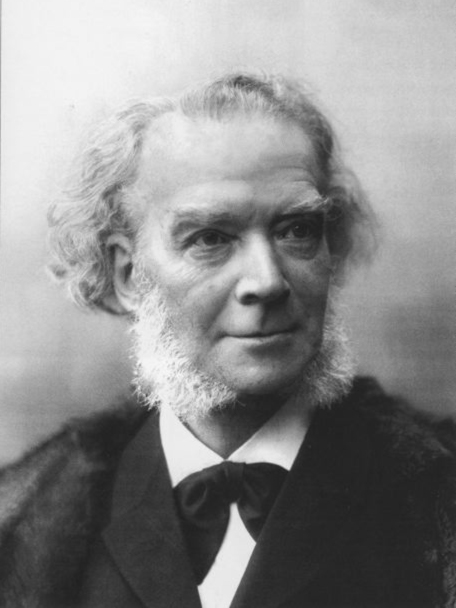In the grand symphony of 19th-century classical music, few figures played as versatile and influential a role as Carl Reinecke. Born on June 23, 1824, in Altona, then a Danish territory, Reinecke would grow to become a towering figure in German music as a composer, pianist, conductor, and teacher.
Picture a young Carl, his fingers dancing across the keys of a piano, his eyes alight with the passion that would define his life’s work. From an early age, Reinecke displayed an extraordinary aptitude for music, nurtured by his father, Johann Peter Rudolf Reinecke, a respected music teacher. Under his father’s tutelage, Carl gave his first public performance at the tender age of twelve, marking the beginning of a remarkable career that would span nearly eight decades.
As a pianist, Reinecke quickly gained recognition for his technical prowess and expressive interpretations. His concert tours took him across Europe, where he performed not only his own compositions but also works by contemporaries and classical masters. Reinecke’s playing was characterized by its clarity, elegance, and deep musicality, qualities that would later infuse his own compositions and teaching methods.
Reinecke’s compositional output was prolific and diverse, encompassing nearly every musical genre of his time. From symphonies and concertos to chamber music and lieder, his works showcased a deep understanding of classical forms combined with the expressive language of Romanticism. His Piano Concerto No. 3 in C major, Op. 144, remains one of his most celebrated works, admired for its lyrical beauty and technical challenges.
Perhaps Reinecke’s most enduring contribution to the musical canon is his Flute Sonata “Undine,” Op. 167. This programmatic work, based on a fairy tale by Friedrich de la Motte Fouqué, has become a cornerstone of the flute repertoire, beloved by performers and audiences alike for its evocative storytelling and masterful writing for the instrument.
As a conductor, Reinecke left an indelible mark on the musical life of Leipzig. In 1860, he was appointed conductor of the Gewandhaus Orchestra, one of the most prestigious musical positions in Germany. During his 35-year tenure, Reinecke elevated the orchestra’s reputation, expanding its repertoire and attracting world-class soloists. His interpretations of classical and romantic works were highly regarded, and he was particularly noted for his performances of Mozart’s music.
However, it was perhaps as a teacher that Reinecke exerted his most far-reaching influence. In 1860, concurrent with his appointment at the Gewandhaus, he became a professor of composition and piano at the Leipzig Conservatory. Over the next four decades, Reinecke would shape the musical education of countless students, many of whom went on to become significant figures in their own right. Among his notable pupils were Edvard Grieg, Christian Sinding, Max Bruch, and Sir Arthur Sullivan.
Reinecke’s teaching philosophy emphasized a solid grounding in classical forms and techniques, combined with an openness to the expressive possibilities of Romantic music. He believed in the importance of a comprehensive musical education, encouraging his students to develop not only their instrumental skills but also their compositional abilities and theoretical understanding.
Throughout his long career, Reinecke remained committed to preserving and promoting the classical tradition. He was a staunch advocate for the music of Mozart, Beethoven, and Schumann, at a time when more radical musical innovations were beginning to emerge. This conservative stance sometimes put him at odds with more progressive musical trends, but it also ensured that generations of musicians received a solid foundation in the classical repertoire.
Despite his adherence to traditional forms, Reinecke was not immune to the changing musical landscape of his time. His later works show an increased harmonic complexity and a willingness to experiment with form, reflecting the influence of composers like Wagner and Liszt, even as he maintained his commitment to classical structures.
Carl Reinecke passed away on March 10, 1910, in Leipzig, leaving behind a vast legacy of compositions, performances, and pedagogical influence. His life spanned a period of immense change in the world of music, from the height of Romanticism to the early stirrings of modernism. Throughout it all, Reinecke remained a steadfast champion of musical craftsmanship and expression.
Today, while Reinecke’s compositions may not be as frequently performed as those of some of his contemporaries, his influence continues to be felt in the world of classical music. His pedagogical works, including numerous études and exercises, remain valuable tools for developing musicians. His editions of classical works, particularly those of Mozart, continue to be respected for their insight and attention to detail.
Carl Reinecke’s life and work serve as a bridge between the classical traditions of the past and the romantic expressions of his own era. His dedication to musical excellence, both as a performer and educator, helped shape the course of German music in the 19th century. As we listen to his compositions or study his pedagogical works, we are reminded of the enduring power of musical tradition and the importance of nurturing the next generation of artists. In the grand concert hall of music history, Carl Reinecke’s voice continues to resonate, a testament to the lasting impact of a life dedicated to the art of music.


